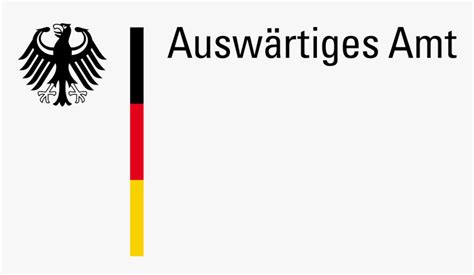On Thursday, 27 July 2023, Protection International (PI) hosted the online webinar on public policies “Laws to Protect Human Rights Defenders in West Africa and the Great Lakes Region: Are they fit for purpose? What else is needed?”
Five regional public policy experts participated as panelists, including Marthe Coulibaly, Director of the Coalition Ivoirienne des Défenseurs des Droits Humains (CIDDH), Kanni Abdoulaye, Coordinator of the Réseau Nigérien des Défenseurs des Droits Humains (RNDDH), Catherine Mbui, HRDs Focal Person at the Kenya National Commission on Human Rights (KNCHR), Stella Yanda, Executive Secretary of INITIATIVES ALPHA, and Vicar Batundi, National Coordinator of the Foyer de Développement pour l’Autopromotion des Pygmées et Indigènes Défavorisés (FDAPID).
Over 140 persons attended the webinar and participated very actively, asking numerous and engaging questions. With the help of our panelists, we were able to delve into the existing protection policies in their countries while identifying avenues for civil society action. We also discussed how state authorities and NHRIs can enable the space for a vibrant civil society to thrive across Africa.
Protection International’s work in public policies for the protection of human rights defenders
Contributing to better public policies for the protection of human rights defenders (HRDs) is at the heart of Protection International’s (PI) strategy: since the early 2000s, we have published several reports and analyses on this topic and we have supported local authorities and civil society public policy work in some countries in Africa, Latin America and Asia.
This topic is at the heart of our interventions because, ultimately, the obligation to protect defenders from threats and attacks lies on State authorities. Moreover, adopting public policies geared at protecting defenders and their right to defend human rights can help tackle this complex problem.
Yet, national public policies to protect HRDs at risk come in many shapes and forms: it can be national laws, subnational legislation, protection mechanisms, policies and guidelines by independent National Human Rights Institutions (NHRIs), among others. In Latin America, for instance, we see a strong focus on protection mechanisms, mainly because of the high levels of violence and criminality that affect HRDs, while in Africa there has been a proliferation of national laws, mainly in West Africa, and the subnational legislation in Democratic Republic of Congo (DRC). Such legislation, however, is more a declaration of intent by the state authorities than an effective way to protect HRDs: we have seen little to no implementation when it comes to preventing and addressing threats and aggressions, or when civic space is closing.
Unfortunately, both regions share a common denominator in the implementation gap. Even though there are mechanisms and laws in place in many countries, defenders continue to be targeted and attacked with high levels of impunity.
As part of our work on this field, Protection International created the FOCUS Observatory, an online platform that aims to centralise knowledge about public policies for the protection of HRDs around the world, keep track of updates and analyse their reach and effectiveness.
More recently, PI’s office in DRC and its Global team based in Brussels embarked on a collaborative research project focusing on how HRDs perceive the impact of the protection subnational legislation (provincial edicts) of North and South Kivu on their human rights work. The results of this research can be found in the FOCUS Observatory website.
Main takeaways from the webinar
Public policies in DRC (Vicar Batundi):
- Existing policies for HRD protection:
- Decree 39 of 12 August 2009, which establishes the Liaison Body (Entité de Liaison) of Human Rights. This body, which is no longer operational, included different state institutions and government ministries with a mandate to promote and protect human rights.
- Provincial Edict 001/2016 of 10 February 2016 for the protection of HRDs and Journalists in South Kivu.
- Provincial Edict 001/2019 of 30 November 2019 for the protection of HRDs in North Kivu. Its Article 6 underlines the protection of women HRDs.
- Existing policies for the protection of marginalised groups:
- Law 22/030 of 15 July 2022 for the protection and promotion of pygmy autochthonous peoples
- Organic Law 22/003 of 3 May 2022 for the protection of the rights of people with disabilities.
- Policies in the pipeline:
- Edict for the protection of HRDs in Maniema province, adopted on 7 November 2022 by the Provincial Assembly; however, it has not been enacted due to a political crisis between the provincial government and the assembly
- National draft law for the protection of HRDs, adopted by the National Assembly (lower chamber of parliament) on 12 December 2022, and the Senate (upper chamber) on 14 June 2023. The text of the law has to be harmonised by a joint parliamentary commission
- Vicar’s conclusion: DRC has a rich public policy framework for HRD protection, but there is a in terms of their effective implementation.
Public policies and WHRDs in DRC (Stella Yanda):
- Implementation gap at the provincial level in South Kivu:
- The Liaison Body for South Kivu was never operational following an incident between the provincial governor and the representatives who were designated to seat in the body.
- The National Commission of Human Rights should have provincial coordination bodies: however, in South Kivu, the appointed representatives do not even have an office to conduct their work.
- There is lack of both specific gendered focus and the adequate means/resources for the implementation of the existing policies.
- The adoption of the provincial edict of South Kivu at the time is the result of a several-year process where many individual WHRDs participated even though there was no specific participation of CSOs working specifically on women rights
Questions:
- Participation of the EU in the adoption of the DRC policy instruments:
- Key role played by diplomatic missions, particularly the Dutch and Belgian embassies.
- Participation of local CSOs:
- In South Kivu, 10 CSOs participated in the discussions leading to the adoption of the national law: engaging with the members of the Human Rights Commission of the National Assembly
- Inclusion of LGBTIQ+ HRDs:
- None.
West Africa:
Marthe Coulibaly – existing public policies in Côte d’Ivoire:
- Consitution of 2016 (Art. 26) enshrines the role of CSOs as key actors for development in the country.
- National Law 2014-388 of June 2014 for the protection of HRDs
- Implementation Decree of February 2017, which foresees the creation of a National Protection Mechanism for HRDs
- Modification Decree 2021 (specifying the government ministries in charge of implementing the law: Ministry of Interior and Internal Security, Ministry of Human Rights, Min. of Justice, Min. of Defence)
- Revision in 2018 of the law framing the National Comission of Human Rights (NHRI), which became the National Human Rights Council with a specific mandate on HRD protection.
- National Protection Mechanism: operational since Feb 2022
- This legal framework opens the possibility for HRDs to advocate for protection when their rights are violated (when WHRDs are arrested, the right to protest) and also to engage with other international stakeholders (UNSRs on HRDs and on FoAA, and the Sp Rapp on HRD of the ACHPR.
- The respect to the rights conferred by the Law of 2014 allowed them the engage in the ongoing process of reform of the Ivoirian law on associations (of 1960) to harmonise its contents with the Law of 2014
- What is needed is the “appropriation” (ownership) of the law by HRDs across the country
- Challenges: the implementation of the law.
- Ministerial Arretés that restrict the right to protest that need to be repealed.
- 55’13”
As main takeaways from the webinar, we could highlight the following ones:
- Closing the implementation gap and effectively protecting HRDs requires political will. Politicians and government officials must recognise the role that human rights defenders play in building a democratic and more just society.
- Adopting public policies to protect HRDs and their right to defend human rights are complex processes that depend on the socio-political and institutional realities of each country. The effort make take several years to bear its fruit – as illustrated by the case of Niger. Moreover, adopting national laws is not the end but the beginning of a journey: as the case of Côte d’Ivoire illustrates, civil society has been engaging with different state authorities with the aim to adopt additional policy instruments that allow for the proper implementation of the national law.
- Participation of civil society in the development of protection policies is essential. Policy-makers should build spaces to engage with CSOs and other stakeholders (including NHRIs) to properly discuss and include the protection needs of women defenders and HRDs from vulnerable groups, including those with disabilities. Such dialogue between HRDs and local authorities is also key to build an enabling environment for the defence of human rights.
- Networks for protection are likewise essential: protection networks at a national level should include HRDs and their CSOs at the grassroots level and across the country. These networks should be strengthened through the links with African regional networks as well as with international partners and stakeholders. The case of DRC provides an example where embassies and diplomatic missions have provided support to the efforts by the government, the parliament and civil society organisations to adopt HRD protective legislation in the country.
- Networks can also play an important role in terms of the monitoring and evaluation of HRD protection public policies. While pushing for legislation and public policies that protect HRDs and their right to defend human rights, defenders and their CSOs should keep an eye on restrictive legislation and seek to repeal or at least modify it.
The webinar was organised within the scope of two projects in the Democratic Republic of Congo and West Africa, financially supported by the German government. We also counted on the strong collaboration of our partners: Solidarité Féminine pour la Paix et le Développement Intégral (SOFEPADI), Coalition des Femmes Défenseuses des Droits Humains, West African Human Rights Defenders Network, and Partnership for Justice.
Protection International would like to acknowledge the precious support of our funders


